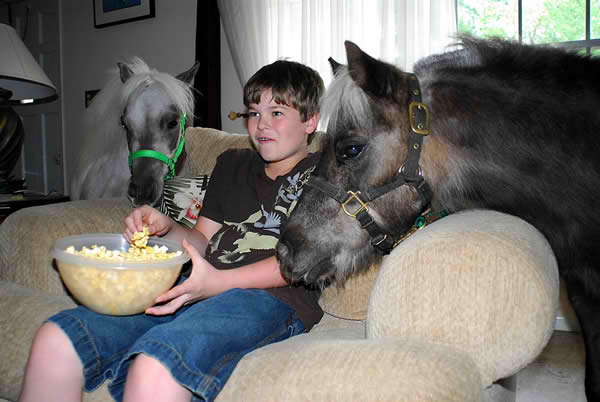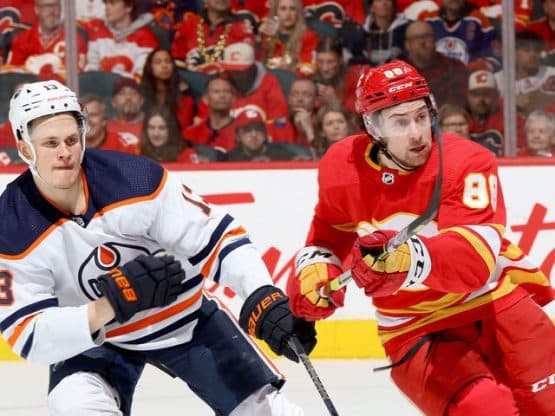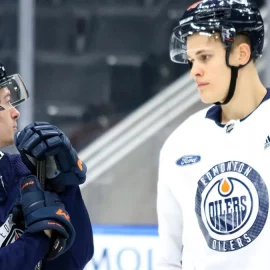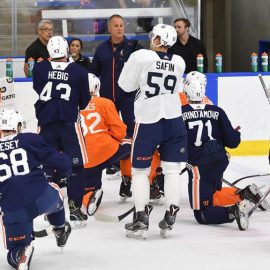One of the persistent myths about the Oilers’ recent history involves the power play. The myth reads like this:
*In 2011-12 Ralph Krueger, then an associate coach under Tom Renney, took over the power play.
*From the 2010-11 season to the 2011-12 season, the power play improved from 27th in the NHL (14.5% success rate) to 3rd in the NHL (20.6%), something then GM Steve Tambellini highlighted when promoting the Krueger hire the following season.
*As head coach for the 2012-13 season, Krueger continued to ice a successful power play, good enough for 8th in the NHL (20.1%)
*Since firing Krueger, the Oilers’ power play has hit the skids and fallen to a paltry 21st in the NHL (17%)
Overall, the narrative reads like this: Krueger was a power play ace and his loss is directly responsible for the lacklustre power play performance of the team.
Two powerful lines of thought reinforce this narrative.
1. The young, talented Oilers’ forwards surely possess a natural talent for power play success. Failure to produce with this group is seen as an special brand of failure, which only serves to highlight all the more the apparent successes of the Krueger years.
2. The Oilers of the last several years have been so woefully bad that any mark of success stands out as a Herculean feat.
The narrative, cut through with these lines of thought, lends the Krueger years an aura of respectability in the midst of years of failure.
“Well,” the story reads, “at least Krueger got something, anything, right! None of the other guys, including the current guy, can even manage that!”
There are other narratives about the Krueger years [the 24th overall standings’ finish; the “handling” of Yakupov; the use of the “Kid Line”] that deserve some sober second thought, but it is the persistence and ubiquity of the power play myth that is in the greatest need of a review.
An Aside on the Moral Psychology of Sports Chatter
One of the major pratfalls radiating out of nearly all traditional sports coverage is an uncritical commitment to a rather stale conception of subjectivity, wherein the individual operates as some kind of back room agent for their body, freely gazing over the field of possible future events and in clear command of actual outcomes. Let’s call this The Agent-Centered Model. This model fetishizes the individual and its rational command over both body and environment.
The benefit of such a model is twofold. It reduces the complexity of events in the world down to a simple human agent centered model of actions willfully performed by agents (X did Y). And, it opens the door for the intrusion of moral interpretations of events (X did Y, or X is responsible for Y).
Such a model, wherein individuals are in control of themselves and their environments and in wilful command of their actions, lends itself to a simple series of narratives. Each event allows for the allocation of praise/blame based on outcomes. The knotty confusion and noise of how events come about is reduced down to a simple story: X is to be praised for performing Y, just as Z is to be blamed for failing to stop the performance of Y.
This is the kind of thinking that turns players into heroes who “rise to the occasion” and villains who “collapse under the pressure.”
[youtube http://www.youtube.com/watch?v=SAkVnlA9CJo&w=560&h=315]The major benefit here, aside from the tidiness of the storyline, is the ego-benefit the readers/viewers get from this kind of analysis. We all get to indulge in the fantasy of the free individual mastering the universe.
The major cost is the self-congratulatory tunnel-vision occasioned by this kind of thinking. Simple narratives (especially ones that flatter the egos of fans––’You are in control of your life!”) wear deep, deep grooves that make it increasingly difficult to add information and critical perspectives.
On Luck and Repeatability
One the strongest arguments the advanced stats revolution has made against traditional stats and the narratives that attend them revolves around the questions of luck and repeatability.
The reason luck is such a powerful anti-narrative concept is because it throws a wrench in the force of The Agent-Centered Model. The clean lines of subject–>action–>assignation of praise/blame are disturbed by luck. Once luck enters the picture, one is made to come to terms with how limiting the stories of The Agent-Centered Model are, i.e., how little we actually learn from them about what has taken place.
What do we mean by “luck”?
A persistent problem in any sports related conversation about luck (aside from the line the argument that simply dismisses luck out of hand) revolves around framing the issue. There are two frameworks in which luck gets brought up and the two are often confused.
1. The most common use of luck, one familiar to even those who reject or downplay its effects, is in relation to the singular event. For example, let’s say a puck takes an errant bounce off a skate and goes in the net. In this case, we find ourselves hard pressed to unreservedly praise the goal scorer for his good fortune, even if we accept the adage “one creates their own luck.” Something holds us back from committing ourselves to the Agent-Centered Model here. Mentally, we add an asterisk to the event and make a note that reads: luck.
2. When an advanced stats proponent uses the term luck, however, they tend to be referring to a series of events. Over a long enough stretch of track, any given player is going accumulate a record of performance, what we might call their “true talent.” For example, with several NHL seasons of data, we can come to some fairly definitive decisions on a player’s strength as a goaltender by looking at their average save percentage (at evens) over that period. The large sample size smooths out the uneven performances of daily life and fairly reliably tells you who will perform well/poorly in the future.
In this case, “luck” refers to outliers within the larger pool of data. These outliers are either bracketed off (as in the case of situational play, i.e., power play and penalty kill in favor of even strength), or smoothed out (as in the case of truly great and lousy performances). The goal of identifying luck in this regard is to reach a conclusion about a player’s true talent, i.e., a repeatable talent. This approach straight-forwardly challenges any robust Agent-Centered Model insofar as it attempts to account for all manner of factors outside the control of individuals. Built into this perspective is a rejection of the individual as master of his destiny.
The difference between the two kinds of luck involves making a change of perspective from evaluating a local phenomenon (an isolated event, in which a question of praise and blame is at stake) to evaluating a global phenomenon (a series of events, in which a question of repeatability is at stake).
Let me put it this way: in the first instance, the one most are familiar with, the goal of the conversation about luck is to determine whether a player is responsible for a particular outcome. In the second instance, the goal of the conversation about luck is to determine a repeatable level of performance.
To be clear, in this article we are concerned with the second kind of luck.
The Power Play
The reason I bring up the Agent-Centered Model is the following: I believe the narrative surrounding Krueger’s power play success is heavily luck-dependent. In a narrative scheme whereby “the results speak for themselves” and agents are unambiguously responsible for outcomes, Krueger is easily the hero of the movie. Once we account for luck, however, the entire narrative apparatus collapses on itself.
Let’s go through some background here. Some of the big kids of the advanced stats community have done the heavy lifting for us and the results are clear.
Power play efficiency (a team’s power play conversion rate) and power play shooting percentage are not a reliable indicators of the strength of a team’s power play. From Desjardins’ study:
Shooting rate – shots for per 60 mins at 5-on-4 – is by far the most persistent talent. PP efficiency and especially shooting percentage regress much more heavily to the mean. A team’s shooting percentage in one half of its games has almost no predictive value for the other half of its games… Shooting percentage has very little predictive value as we might have expected, but surprisingly (or not surprisingly to those who follow the line of reasoning behind shot differential metrics), the rate at which teams shoot on the PP is a better indicator of their future power-play “efficiency” than their past power-play efficiency.
Building off of Desjardins’ work, JLikens found the following:
Just like Gabe Desjardins found, shot production is a better predictor of future powerplay success relative to raw performance (with respect to 40 game sample sizes). And while missed shots have some informational value, blocked shots do not.
Reviewing the literature on the subject and updating the data, Patrick D underlined the relevant point:
it appears that Fenwick For/60, with misses and blocked shots adjusted for scorer bias, is the best predictor of power-play success (GF/60), and well correlated with winning (Pts/game).
If we make a chart for the Oilers power play stats including efficiency, shooting percentage and fenwick for per 60 rate for the past 4 years we get the following:
[note: I’ve included the pre-Krueger year for reference. While Krueger was the Oilers’ associate coach during the 2010-11 season, I cannot find a record of whether he was in fact responsible for running the power play or not during that season. What is clear, however, is that the Krueger-Power-Play-Narrative is contingent upon Krueger taking over the power play and dramatically fixing it only the following year. See these narrative reference points here, here and here]Looking at this chart, we can point out a couple of things.
1. The Oilers’ power play under Krueger enjoyed an unprecedentedly good run of shooting. Good enough for 1st and 2nd in the league.
2. Despite this, the Eakins’ year, lamentable as it is, actually managed to produce more unblocked shot attempts per 60 than either of the Krueger years.
3. During the Krueger years, the Oilers managed their remarkable shooting percentage while producing among the league’s worst in terms of unblocked shot attempts.
4. For reference, during the Krueger years, the elite power play teams managed c. 75 FF/60 (see here and here).
5. Based on FF/60, the Oilers of recent vintage have absolutely not had anything like a good power play, including under Krueger.
She Was Too Good To Me
The problem with looking at the power play in terms of efficiency and shooting percentage is that it lulls you into the mysteries of a fickle lover. Shooting percentage (as those who have watched Jordan Eberle or Nail Yakupov with any rigor are no doubt aware), especially on the power play, can vary widely from year to year.
The Oilers today are the same as they were before and during Krueger’s tenure: unable to reliably generate unblocked shot attempts on the power play. The story of the Krueger years is not “radically improved power play” but rather “exceptionally lucky power play.” Until the Oilers find a way to radically improve their shot generation abilities with the man advantage they are doomed to wait on luck, a mistress unlikely to strike thrice.
There has been a lot made of the recent hiring of assistant coach Craig Ramsay, who is said to be taking over the Oilers’ power play. As we wait to see what he comes up with, let’s be clear about a few things:
1. The power play was ghastly under Eakins (26th in FF/60)––the league worst 13 short handed goals against does not help matter.
2. The power play under Eakins was no worse, however, than it was under Krueger. It was, in fact, marginally better.
3. As Ramsay casts about for power play models of success, the last thing he should do is hone in what Krueger did. That kind of luck does not come with a blueprint. He should look to what San Jose has been doing for the past 5 years instead (they just happen to be the number one team in FF/60 five years in a row).
The Blinders of Narratives
Part of the project of advanced stats is to trouble the stories we tell about hockey with reality and all its thorns. Bringing luck into the conversation accomplishes two things: it strips away factors that are beyond an individual’s control and it lays bare the narratives that are build upon illusory foundations.
Accounting for luck, we can say Krueger constructed a poor power play that was unlikely to repeat its apparent success if he remained head coach. We can also see that results (i.e., the power play efficiency rate) are far less reliant upon an individual’s actions. Or, we can see that the Agent-Centered Model is deeply flawed.
[adsanity id=1808 align=alignnone /]Add The Sports Daily to your Google News Feed!








